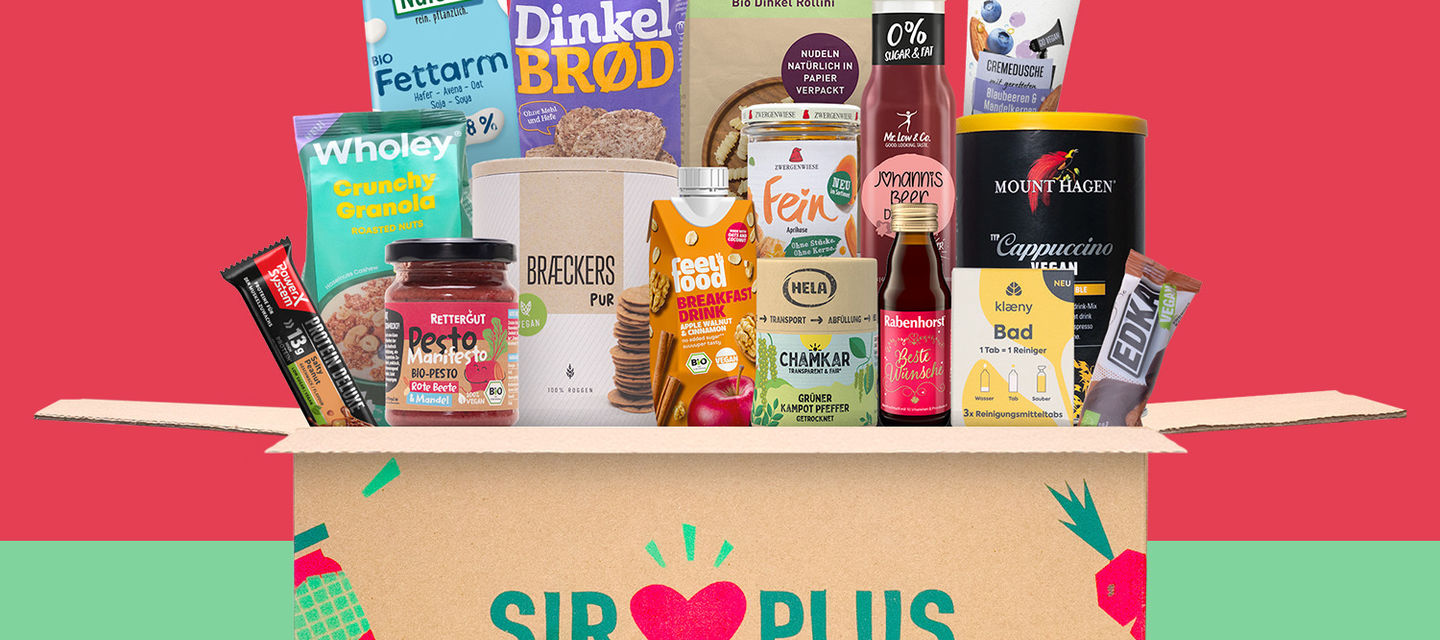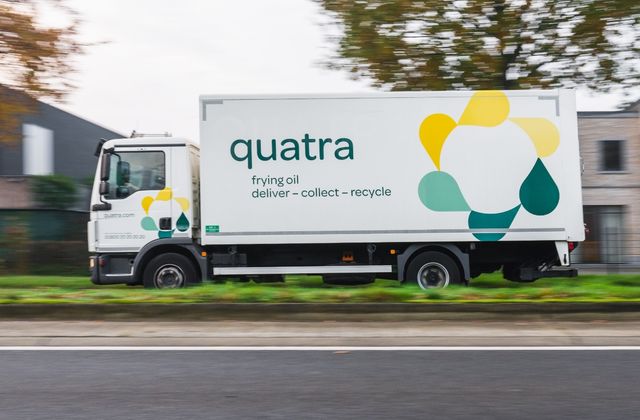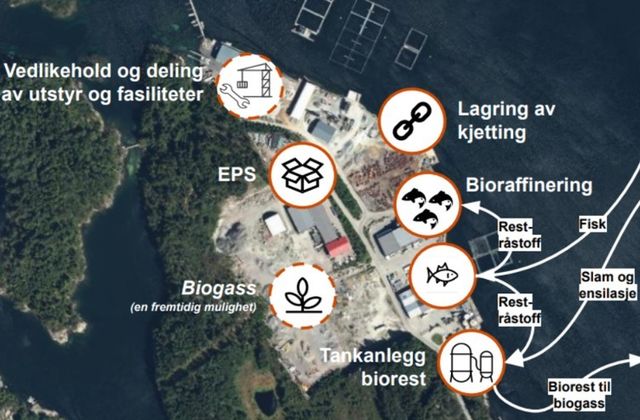Food & beverage, Consumer goods
What is it? SIRPLUS is an online store that sells rescued products, including food, pet food, household goods and cosmetics. Customers can buy items through the online store or subscribe to a monthly surprise delivery box supplied to them with rescued food. Based in Germany, the business has in-person stores but needed to pivot to focus on online trading after the COVID-19 pandemic.
Why is this important? Many people in the world are lacking food: in 2022, almost 30% of the world population lived in food insecurity (United Nations, 2023). At the same time, around 40% of food that is produced worldwide gets lost or wasted (WWF, 2021). In Germany, an estimated 18 million tonnes of food are wasted every year (SIRPLUS, 2024e). Of those, an estimated 10 million tonnes should be avoidable, with food that can still be used (SIRPLUS, 2024b).
Main resource strategy: Slowing the loop by finding new customers for products still suited for consumption that would otherwise be wasted.
Business model aspects:
- Value Proposition: SIRPLUS saves products that would have gone to waste. Some potential reasons may be wrong size or shape, surplus production, a passed-by expiry date, outdated design or logistical mistakes (SIRPLUS, 2024e). They also offer education materials and advice to avoid food waste (SIRPLUS, 2024c). Through their offering, items that would otherwise have gone to waste can be redirected to customers that can still consume or use them.
- Value Creation & Delivery: SIRPLUS purchases the products from farmers, producers or retailers. They ensure that these products would not have been useful for charitable organisations, so that no competition to these causes is created (SIRPLUS, 2024e). They collaborate with 700 producers and retailers. Through their online store, they offer human food, pet food, household good and cosmetics. They also offer a monthly subscription box with vegan food items (SIRPLUS, 2024d).
- Value Capture: The SIRPLUS Box is priced at €29.99 (as of June 2024). This monthly subscription box offers a price reduction for customers as the content should have had an original retail price of around €50 (SIRPLUS, 2024d). SIRPLUS buy the items through their network of partner producers and retailers and resell them at a reduced price to make them more attractive and prevent waste.
Strategies for degrowth/ sufficiency (based on sufficiency strategies from Niessen & Bocken, 2021):
- Awareness-raising: SIRPLUS provides educational material about the impacts of food waste. They try to show the value of food through public relations work, a podcast, blog posts and other awareness-raising measures.
- Green alternative: SIRPLUS resells rescued food and other products that do not meet norms or are close to the best-before date. Therefore, they offer a sustainable, rescued alternative.
Business model experimentation practices: SIRPLUS was founded in 2017 by Raphael Fellmer (SIRPLUS, 2024e. In a first attempt to reduce waste, the business opened in-person stores called “Rettermarkt” – “rescuer markets”. The first market was opened in September 2017 in Berlin through crowdfunding by 1,700 interested people (SIRPLUS, 2024a). Four further shops were opened in Berlin, offering fresh and processed food. However, in 2021, following the pandemic, those in-person supermarkets were no longer profitable and had to be closed (SIRPLUS, 2021) and the focus was shifted onto the online store. Their vision is to build the online store in 15 countries (SIRPLUS, 2024a).
Sustainability outcomes: SIRPLUS estimates that one of their monthly subscription boxes can save 20.98 kg CO2e. In a year, that would add up to a CO2 saving of 252 kg CO2e emissions, the same amount as saved by 24 trees in a year (SIRPLUS, 2024f). They estimate that since 2017, they have been able to save over 4 million kg of food from being wasted (SIRPLUS, 2024a).
Sources:
SIRPLUS (2024b). Mission & Vision. Accessed 10 June 2024 at: https://sirplus.de/pages/mission
SIRPLUS (2024c). Rettertips. Accessed 10 June 2024 at: https://sirplus.de/pages/rettertipps
United Nations. (2023). The Sustainable Development Goals Report 2023: Special edition - Towards a Rescue Plan for People and Planet. United Nations Publications.
***
About project Circular X
Project Circular X is about ‘Experimentation with Circular Service Business Models’. It is an ambitious research project funded by the European Research Council (ERC) which supports top researchers from anywhere in the world. Project CIRCULAR X runs from 2020-2026. The project is led by Principal Investigator (PI) Prof Dr Nancy Bocken, who is joined by a multidisciplinary team of researchers at Maastricht Sustainability Institute (MSI), Maastricht School of Business and Economics, Maastricht University. The project cooperates with businesses who want to innovate towards the circular economy.
Project Circular X addresses a new and urgent issue: experimentation with circular service business models (CSBMs). Examples of such new business models include companies shifting from selling products to selling services and introducing lifelong warrantees to extend product lifetimes. However, CSBMs are far from mainstream and research focused on experimentation is little understood. The research aims to conduct interdisciplinary research with 4 objectives:
- Advancing understanding of CSBMs; their emergence and impacts
- Advancing knowledge on CSBM experimentation
- Developing CSBM experimentation tools
- Designing and deploying CSBM experimentation labs
Funding source
This project has received funding from the European Research Council (ERC) under the European Union’s Horizon 2020 research and innovation programme, grant agreement No. 850159.
Using this information
When you cite this publication, please use the following source:
Circular X. (2022) Case study: SIRPLUS - Online shop to rescue products. Accessed from www.circularx.eu



